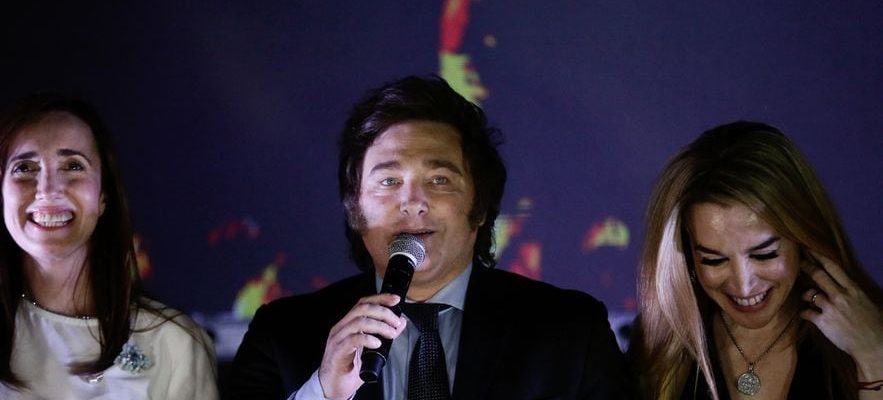On the banks of the Rio de la Plata, literally the “river of silver”, a metal which gave its name to Argentina, the lack of money is measured by the pedigree of the candidates in the last presidential election. To resolve the endless economic crisis that is bleeding this vast country, voters had to choose between an economist and a minister of the Economy. Unusual profiles in a region with heads of state who were a lawyer (Boric, Chile), a trade unionist (Lula, Brazil), a bus driver (Maduro, Venezuela), a guerrilla (Petro, Colombia) or an academic (Lopez Obrador, Mexico). ).
On November 19, the Argentines therefore chose the potion of the liberal-libertarian economist Javier Milei to put an end to the troubles of Sergio Massa, in charge of the Economy for sixteen months, which his compatriots hardly appreciated: 140% inflation in October over one year (and +883% since the start of Alberto Fernandez’s presidency four years ago) and 3 million additional poor people. And this, in a country where 40% of the 45 million inhabitants live below the poverty line. This poor record did not prevent Massa from promising, during his expensive campaign, “a bright future” for Argentina. “It looked like he was talking about Switzerland…” cruelly pointed out Andres Oppenheimer, a famous Latin American editorialist.
“Argentina, which was a rich country, cannot do it”
By sending away the left-wing Minister of the Economy, beaten soundly by the eccentric Milei (56% against 44%), the voters above all said no to Peronism, this catch-all ideology which has dominated the country for four years. twenty years in different forms: workerist during the era of Juan and Eva Peron in the 1940s, antidemocratic and fascist under the reign of Isabel Peron (the second wife of) in the 1970s, socialist in the 2000s, but before all clientelism and supported by large trade union centers capable of blocking the country with monster strikes.
Ultraliberal economist Javier Milei (C), winner of the presidential election in Argentina, addresses his supporters in Buenos Aires on November 19, 2023 alongside his running mate Victoria Villarruel (L) and his partner Fatima Florez
© / afp.com/Emiliano Lasalvia
“Argentina, which was one of the richest countries on the planet a century ago, has everything to succeed – space, natural resources, an educated population, no conflict, etc. – and yet “, it cannot do it, notes the former director general of the World Bank Bertrand Badré. Plagued by populism, it only survives thanks to loans from the International Monetary Fund (IMF)”, adds the creator of Blue Like an Orange, a sustainable investment fund present in Latin America… but which has chosen to avoid investing in Argentina – “Too complicated due to macroeconomic instability…”, he slips.
And this is not new: “As the former director general of the IMF Michel Camdessus repeated, the Paris Club [NDLR : groupe de créanciers publics chargé de trouver des solutions aux pays endettés] created in 1956, was first imagined for Argentina, which was its first “client.” Nearly seventy years later, Argentina still lives on credit, with a permanent fiscal deficit, no reserves for the Central Bank and a debt of 44 billion with the IMF.
In this context, Milei’s proposal to reduce public spending and clean up the nation’s accounts is not crazy, unlike his extreme ideas (eventually abandoned) on the legalization of the organ trade or the wearing of weapons. Moreover, the Buenos Aires Stock Exchange celebrated its electoral triumph with a jump of 22%, unprecedented since 1991, driven by the shares of the national oil company YPF (+ 38%) and the main banks.
Loudly announced during the campaign, the dollarization of the economy (unfeasible) is postponed indefinitely while the plan to abolish the Central Bank (unrealistic) has been put in a drawer. A governor of the Central Bank from the Mauricio Macri era (the president from 2015 to 2019) will be Minister of Economy while the Central Bank will be entrusted to a Harvard graduate. And the presumed ministers all have reassuring profiles. Nicknamed “el loco” (the madman) during the campaign, Javier Milei, who will be sworn in on December 10, already seems a little less delusional the day after his election than the day before.
.
